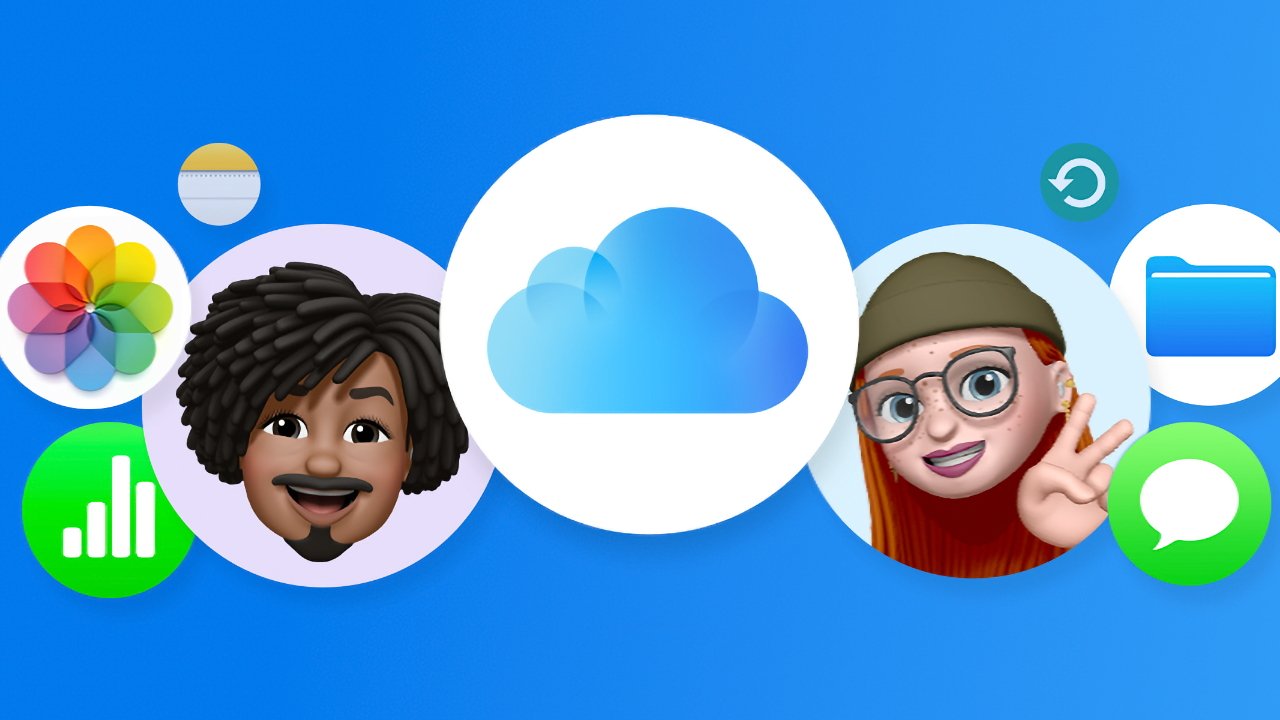Apple's new iCloud+ big data plans start at $30 per month for 6TB
Apple has at long last increased the maximum storage available on iCloud+ with new tiers at 6TB and 12TB -- and it comes at a steep but proportionate cost.

Starting with the release of iOS 17, iCloud+ will add a 6TB tier for $30 per month, and a 12TB tier for $60 per month. There's no detail yet of any discount for paying annually.
Nor has there been any confirmation about how this affects users on the Apple One bundle. Each tier of that includes some iCloud storage space, but the maximum is 2TB.
Currently Apple One costs $32.95 per month for the Premier tier which is the one with 2TB of iCloud storage.
At present, buying iCloud storage on its own per month costs $0.99 for 50GB, $2.99 for 200GB, and $9.99 for 2TB.
Apple's new pricing tiers, then, are simply multiples of the current 2TB cost.
Read on AppleInsider

Comments
I compare it to a 12TB WD desktop drive which Amazon is selling for US$229 - you'd want two of them so that you have a local backup, so that's US$458, plus for an off-site backup I think Backblaze is the best value at US$130 for two years (unlimited data, but you can't connect a huge number of external drives to your computer, so there's a practical limit). Electricity costs for the drives is a maximum US$4 per year each (as estimated here) but more likely to be negligible because they spin down while not in use.
Over the estimated 5 year lifespan of the drives, you'd pay a total of US$783 but you wouldn't have the ease of access that the iCloud storage provides. Backblaze has a web administration interface that's workable, plus iOS and Android apps for direct download to a smartphone or tablet, but it doesn't really have the integration of iCloud.
Five years of 12TB storage on iCloud is 60 months x US$60 pm for a total of US$3600. Interestingly, Backblaze has another product for storing data ("B2") that is priced at US$5 per TB per month, with an extra fee for downloading the data. It's designed for storage where you don't want to reserve any space up front, so you're charged only for what you use, but it's noteworthy that the pricing per TB is the same as iCloud (which doesn't charge for downloads).
For that amount of money it could well be worth building your own SSD-based NAS (Jeff Geerling has a great post here for a 40TB, dual 10Gbps networking NAS with a materials cost of US$4330; you can RAID that for 24TB of storage with 16TB of redundancy plus back up the NAS to Backblaze for the US$130/2yr mentioned above). 8TB SSDs are around US$400 for SATA drives and around US$750 for NVMe drives on Amazon, so you can modify the build cost according to your needs since the drives are the most expensive part.
I know there are differences but they are definitely not worth an extra 19€/mo...
I won't promote other companies on an Apple forum, suffice to say I'm talking about M.
Apple is able to know what is in your cloud (think about the children sexual abuse scanner - if they wouldn't been able to see your data, how could they scan it? and if you're telling me it's automated, I have a bridge to sell you).
M doesn't collect and sell my data (I'm talking about the business service, because I have read thoroughly the rules for the EU).
Apple turns over the data to law enforcement agencies, don't be a child.
But I am not here to advertise or diss one service or another - I use them both, I think they are both great and both serve their purpose - I am just here to give a thought.
But your mention of the planned CSAM scanning does not support your point.
So: Apple is given the right to access, use or disclose (even to 3rd parties) every bit of iCloud content and is free to prescreen or modify it as it sees fit.
It's not me saying that but Apple, so stop showing unconditional support and start being a little more critical, if you want better services and/or products.
I repeat: iCloud+ is a great service - I use it, because 5 Gb is a joke - but I will never be dumb enough as to pay 30€ when I could pay 11€ for the same - more or less - service.
It's been unchanged since 2017.